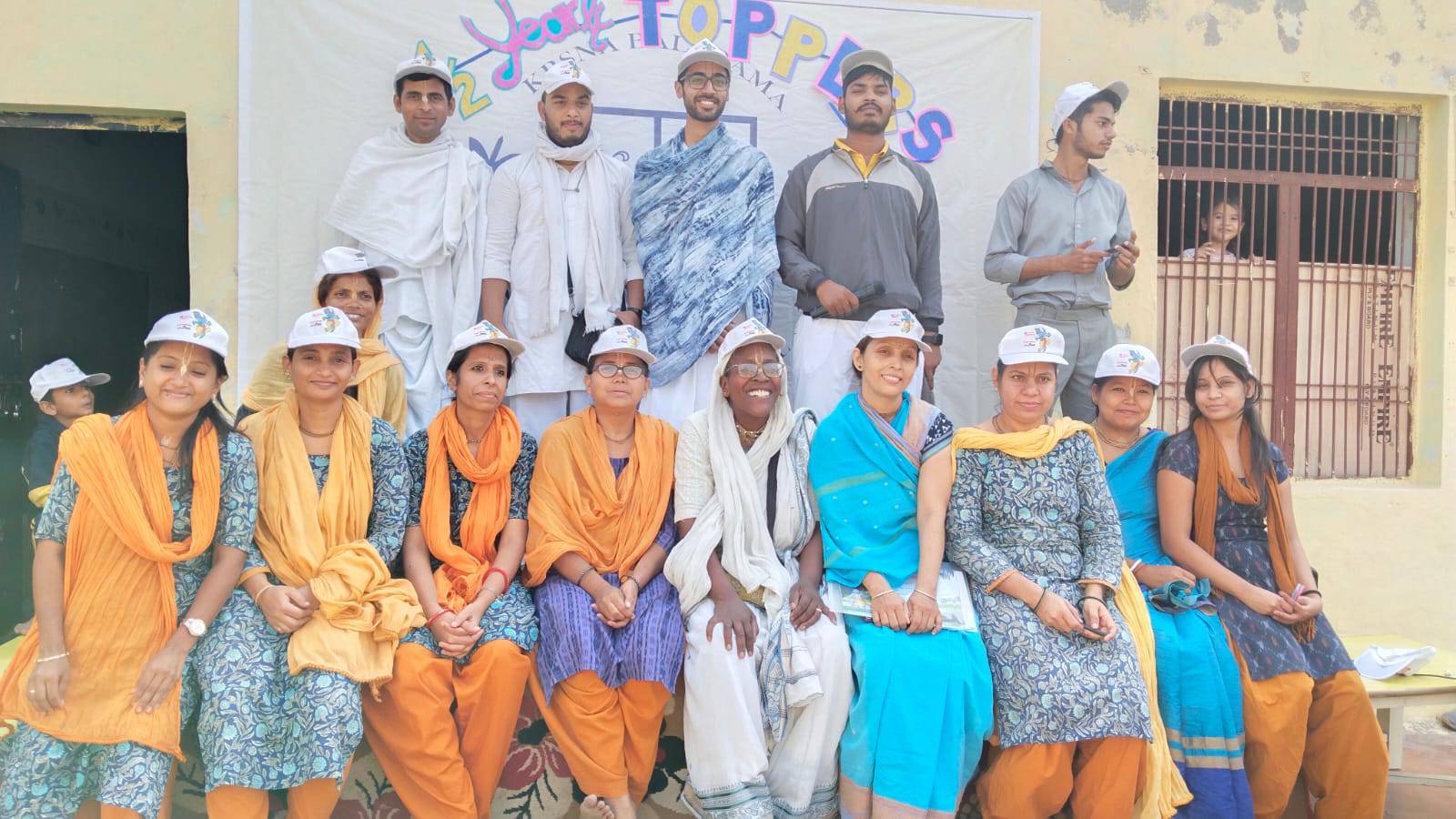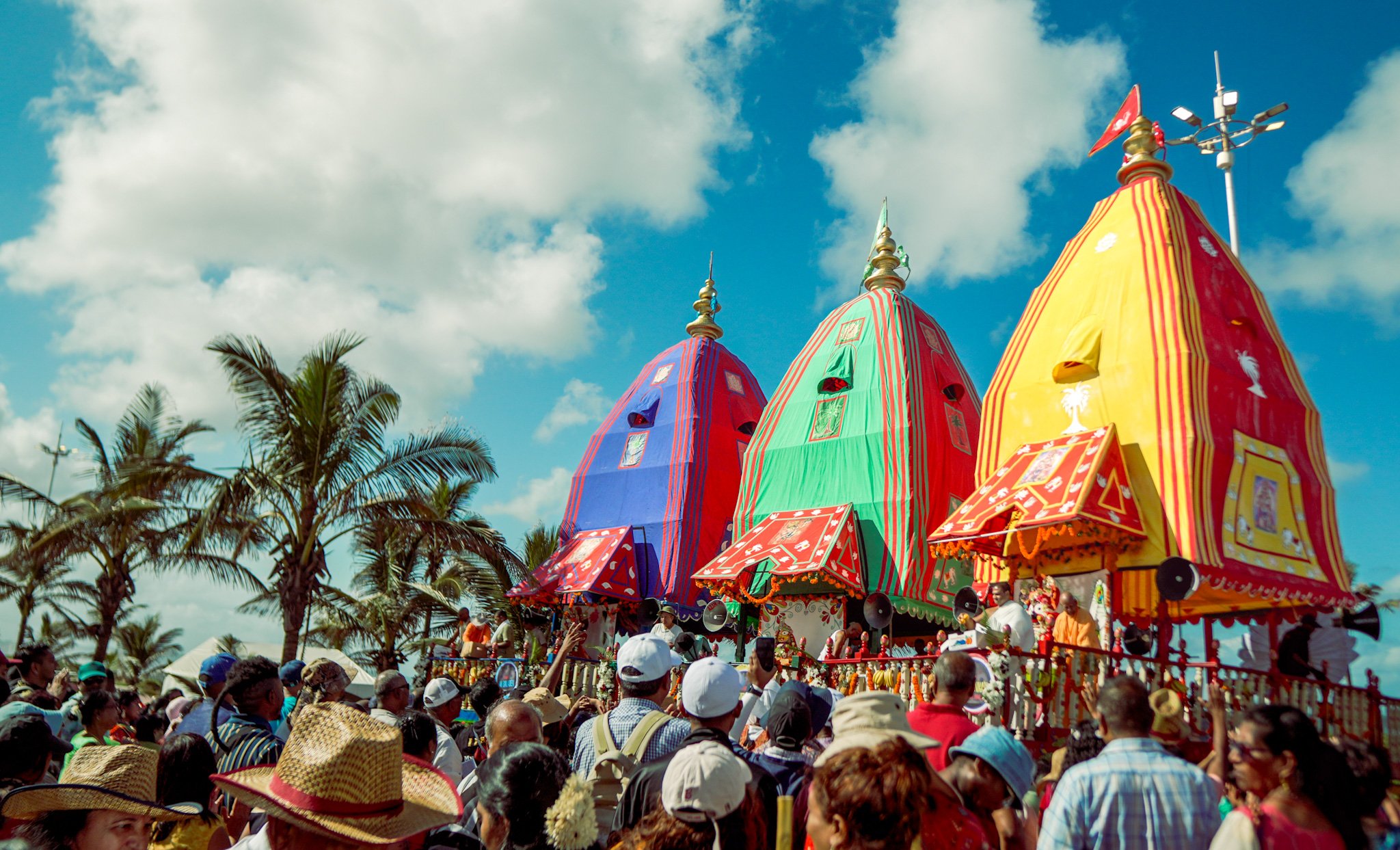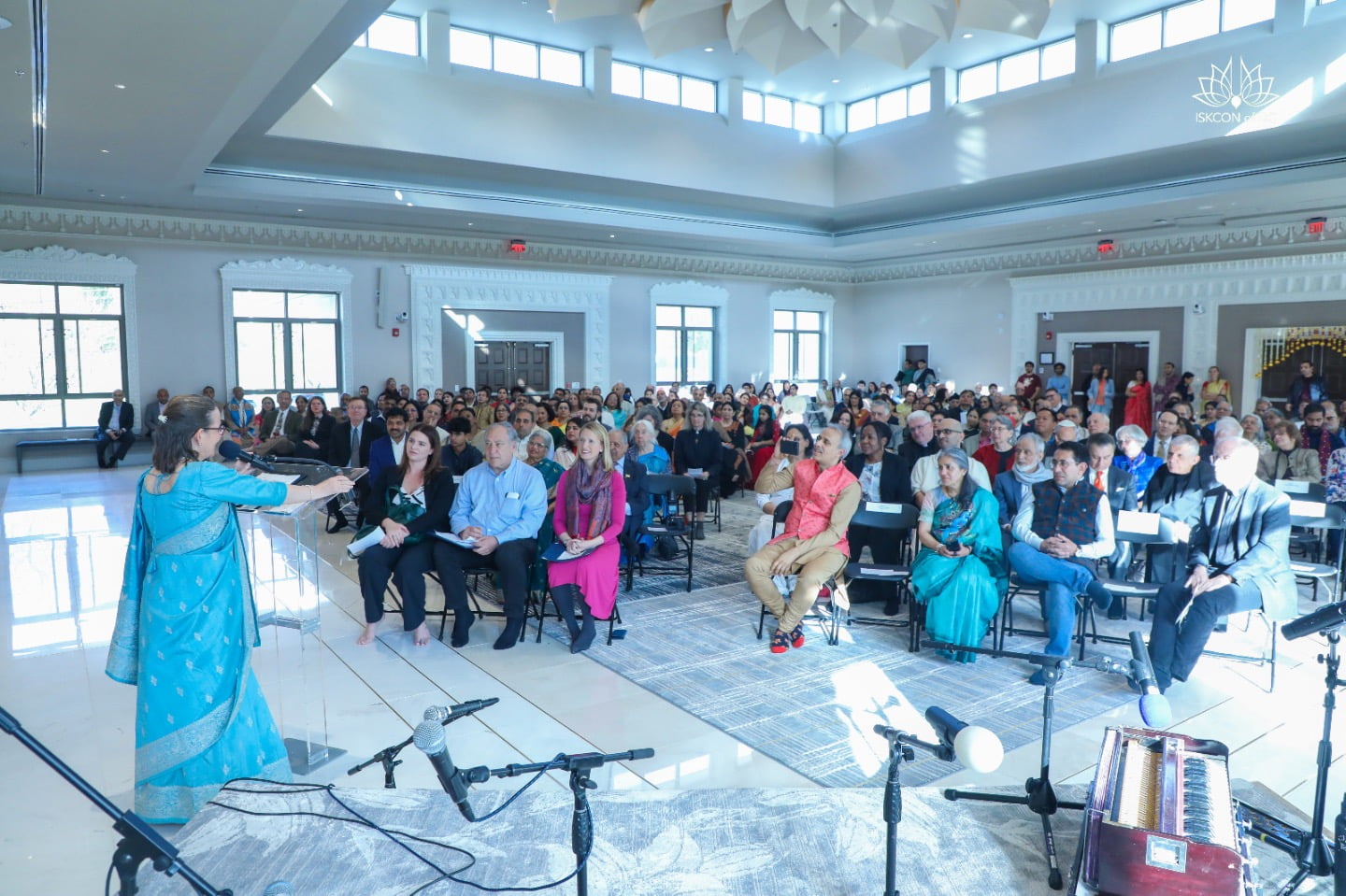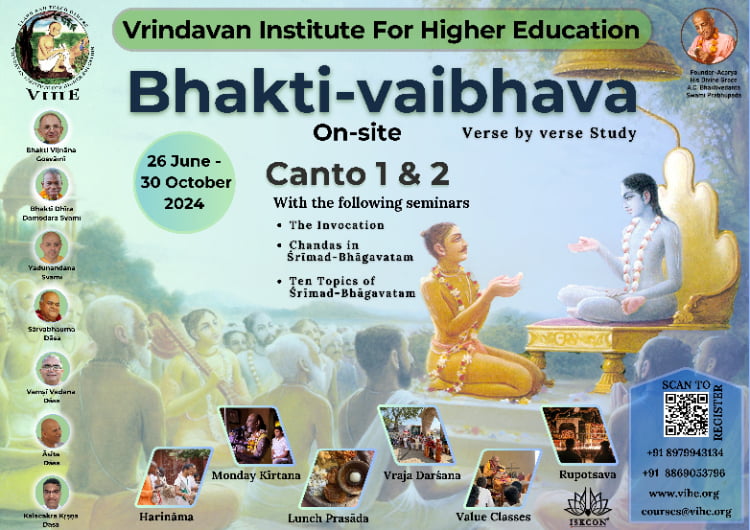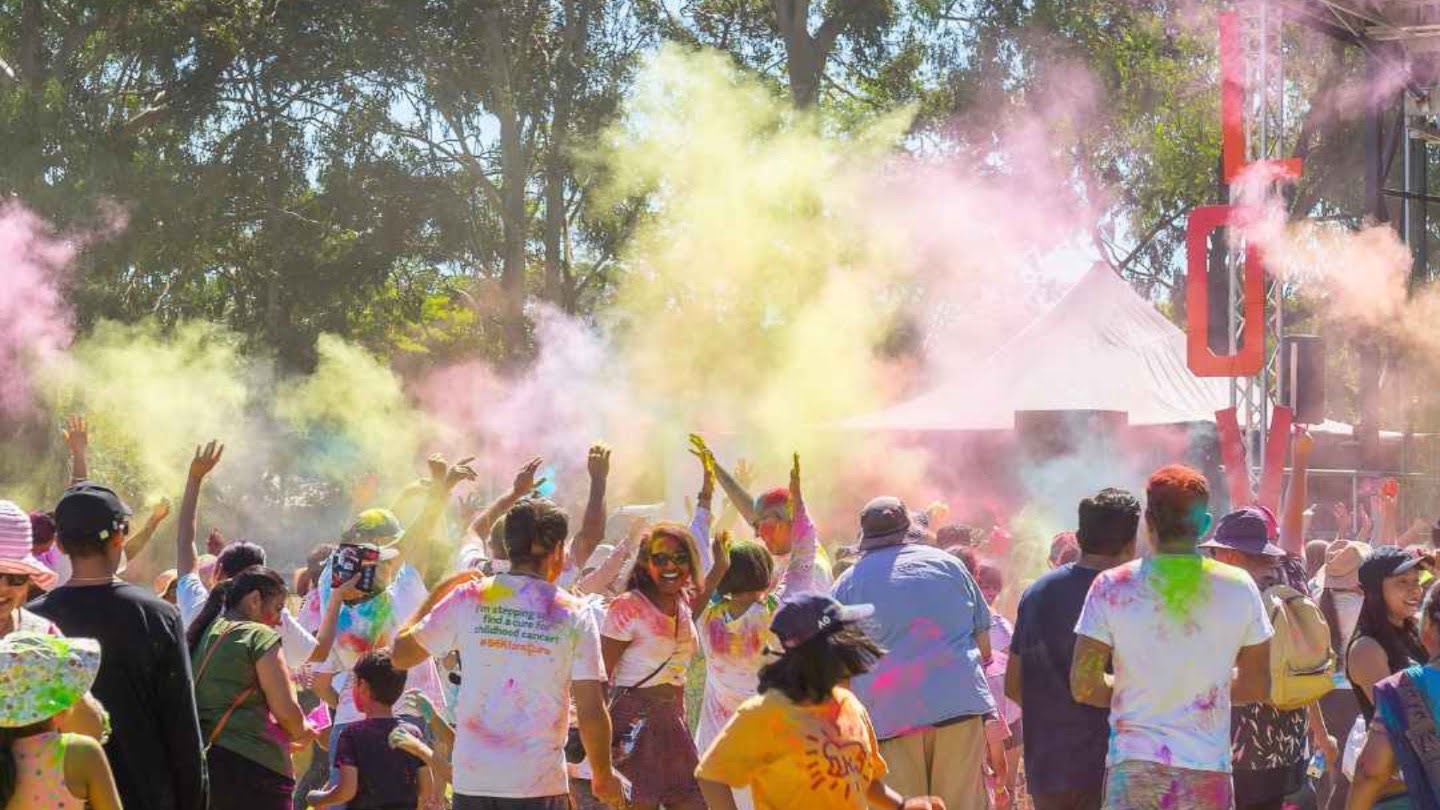Bhaktivedanta Research Library Inaugurated in Kolkata, India
By Madhava Smullen | Aug 16, 2009
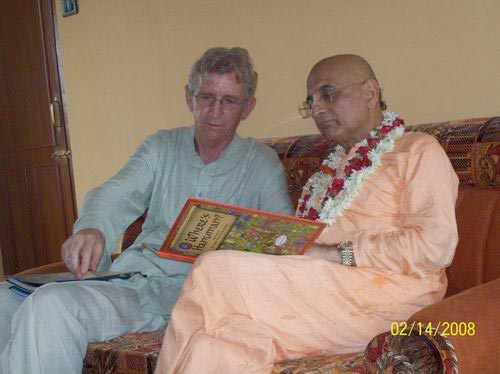
As the sun rose above the Ganges on the morning of June 30th this year, young trainee priests from ISKCON Mayapur’s Bhaktivedanta Academy poured ghee onto the flickering flames of a ceremonial fire sacrifice, and chanted Vedic mantras for auspicious effect.
There was excitement in the air.
As well there should be. After years of preparation, The Bhaktivedanta Research Centre (BRC) library—which aims to carry all exisiting Gaudiya Vaishnava literature—was being inaugurated.
A full day event, the inauguration began in earnest at 1pm, when the project’s general manager Hari-sauri Dasa received ISKCON gurus Bhakti Charu Swami and Jayapataka Swami as special guests.
Jayapataka Swami, who survived a stroke in October 2008, is still suffering its effects. Yet despite partial paralysis in his arms and legs, he insisted on climbing the BRC building’s stone steps all the way up to the library on the third floor.
“His determination to go on with his preaching, despite multiple bodily failures, leaves the onlooker in awe and deep respect,” said Hari-sauri.
Jayapataka and Bhakti Charu Swamis simultaneously cut the ceremonial red ribbon to officially open the library, then stepped inside for a tour. They were delighted at what they saw. Although still incomplete, the library was fully fitted out with a librarian’s desk, computer terminals, book scanner, air conditioning, carpet and vinyl flooring, and enough shelving to accommodate 15,000 books. Five hundred of these already sat on the shelves, including every book written by ISKCON’s founder Srila Prabhupada. These had been donated by the Mumbai branch of the Bhaktivedanta Book Trust.
To inaugurate the library, Bhakti Charu Swami and Mayapur head priest Jananivas Dasa conducted an arati ceremony in honor of the sacred books. Following this the BRC library’s chief book procurer Acyuta Dasa presented its array of books, including Puranas, the Mahabharata and Ramayan, a fledgling Vedic cosmology section, Sanskrit indicies and reference volumes, and various commentaries.
The assembled guests then converged in the library’s temple room—where beautiful deities of Sri Sri Radha Partha Sarathi and a murti of Srila Prabhupada are worshiped—to listen to Hari-sauri Dasa introduce the project. Both Srila Prabhupada and previous Gaudiya Vaishnava leaders such as Bhaktivinoda Thakura and Bhaktisiddhanta Sarasvati had promoted the preservation and propagation of books, he explained. And the Bhaktivedanta Research Centre’s aims and objectives where based on theirs.
Firstly, BRC plans to develop a comprehensive library of books on Indian astronomy from the classical to the modern period. This will be used to explore the perspective of Vedic cosmology, and will serve to establish the cosmology presented in ISKCON Mayapur’s planned Temple of the Vedic Planetarium.
The project also plans to develop a Bhagavad-gita library housing translations and commentaries by Vaishnava teachers from all over India in English, Sanskrit, Bengali, Hindi, Tamil and Gujarati. The collection will also include translations of Srila Prabhupada’s Bhagavad-gita As It Is in all available languages of the world.
The BRC will also collect, preserve and digitize Gaudiya Vaishnava literature from the period of its founder Chaitanya Mahaprabhu to the present. To do this, it will locate old manuscripts in the libraries and mathas of Bengal, Bangladesh and Orissa, as well as other centers of Gaudiya Vaishnavism such as Vrindavana and Jaipur.
Finally, the BRC will encourage study, translation and research on all treasured texts, and will also publish its own literature of a high academic and devotional standard. It will hold seminars, courses and lectures on the content of the library, and will create good facilities for scholars to stay at the Centre and study at its library.
Concluding his talk, Hari-sauri thanked the project’s principle donors, Sri Madan Chanda Shamsukha and his wife Geeta Mukherjee Shamsukha. Mr. Shamsukha, he explained, offered the building to ISKCON in the year 2000, when it was used for youth group meetings and Bhagavad-gita seminars until being reincarnated as the Bhaktivedanta Research Centre.
“Mr. Shamsukha also played an active role in BRC’s renovations of the building, helping to hire contractors, check agreements, and oversee the quality of the work,” Hari-sauri said. “And since he and his wife live in the building, they had to tolerate five months of constant banging and crashing, drills and saws whining, clouds of dust and crowds of workers stomping about. At seventy-eight years old, that is no mean task. And the BRC is eternally grateful to both Mr. and Mrs. Shamsukha for their austerities in the service of the Lord.”
Hari-sauri also thanked the Bhaktivedanta Book Trust International directors, who generously donated Rs. 1,20,000 for the procurement of books.
After Hari-sauri’s speech, Jayapataka Swami and Bhakti Charu Swami unveiled two granite commemoration plaques—one in honor of Mr. and Mrs. Shamsukha, and one to mark the BRC’s inauguration. Jayapataka Swami then spoke, appreciating the library and pledging his full support. He spoke of the Ramanuja Sampradaya, and the wonderful library in Melkote, South India in which they preserve all their important writings and research. Now, with the inauguration of the BRC library, ISKCON had its own similar facility.
Bringing the program to its conclusion, Bhakti Charu Swami expressed his delight at seeing the building transformed and pledged to donate five lakhs rupees (US$10,800) towards finishing the project.
“The presence and blessings of Jayapataka Swami and Bhakti Charu Swami marks an auspicious beginning for us,” said Hari-sauri. “But there is still much work to be done before the library becomes fully functional. We must complete the installation of our computer systems, renovate our seven guest rooms, and begin acquiring our collection of books.”
This collection promises to be a major milestone, and an extremely important contribution to Vaishnavism. According to book procurer Sriman Pranava Dasa, no single center of the Gaudiya Matha—or any other organization—possesses all the works of Srila Bhaktisiddhanta Sarasvati. And all four of the most notable encyclopedias of Bengal Vaishnavism, which constitute a basic reference library for Vaishnava tradition, are out of print, including the Srila Bhaktisiddhanta-edited Vaishnava Manjusa.
“This shows that the study of Gaudiya Vaisnavism in Bengal is quite weak and in dire need of revival,” Hari-sauri said. “The Bhaktivedanta Research Centre aims to be a resource for such a revival through the preservation and translation of literature. It is our intention to have as complete a body of Gaudiya Vaishnava literature as possible, both physically and digitally. And if we can do this, it will be a great service to our entire disciplic succession—both past and future.”
To find out more about the Bhaktivedanta Research Centre library, or to donate towards its completion, please contact BRC general manager Hari-sauri Dasa at harisauri@gmail.com.





